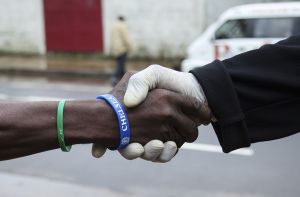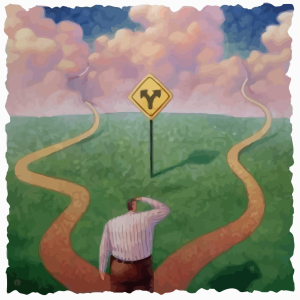***
[Thanks to Steven P. Bennett and Dr. Abdulrahman M. El-Sayed for their articles on the topic of the ALS and its usefulness for promoting public policy and health issues. You can find both of their articles at these links respectively:
http://stevenpbennett.wordpress.com/ , https://www.project-syndicate.org/commentary/abdulrahman-m–el-sayed-compares-western-responses-to-the-summer-s-two-top-health-stories ]
***
The ALS Challenge took America by storm this summer, an ice storm to be exact. If you have (impossibly) not heard of the challenge, individuals post videos of themselves dumping buckets of ice water over their own head in order to raise funds and awareness for ALS, also known as Lou Gehrig’s Disease. ALS, or Amyotrophic lateral sclerosis (ALS), is a “progressive neurodegenerative disease that affects nerve cells in the brain and the spinal cord.” 1. Essentially, patients suffer loss of motor control due to the death of nerve cells, eventually leading to paralysis and their own death. It is a traumatic disease affecting roughly 30,000 Americans at any given time. 2.
The other disease to hit the media this summer was Ebola, a disease that has sadly affected an already suffering Sub-Saharan African population primarily in Liberia and Guinea. Ebola Virus Disease (EVD) has a 90% mortality rate and is extremely contagious with a Biosafety Hazard rating of 4, therefore, requiring caregivers to take the utmost precautions in order to prevent infection (including, ideally, biosuits, multiple showers, a vacuum sealed room, and ultraviolet checks, amongst others). 3. 4. Nearly 1900 people have been confirmed as victims of the 2014 West African outbreak. 5.
Of the two, ALS certainly took the prize as the most talked about on social media and the most money raised. A conservative estimate of the money raised for the ALS Association is in the range of more than $100 million dollars. 6. Money simply has not, and is not, being raised at the same level. It is unclear what amount of funding would even be needed to combat Ebola effectively. Given the difficulty of treating the virus, and the early stages of research, the amount of money that would reasonably satisfy efforts is incomprehensible, but surely insurmountably large at the ideal level.
Much confusion and anger has arisen amongst EVD concerned, socially conscious, and generally well-educated Westerners. The lack of awareness for Ebola, and for its constantly increasing victim population, is a devastating concept when the degree of human suffering in that region is understood on the whole. The civil strife, the famine, and now the inability to effectively control the virus without foreign aid would make the seldom few who are well-versed on the topic in this country cringe in mental and emotional agony. Many individuals with these feelings have taken to the webs, social media, and other forums to express what seems to be a startling hypocrisy with the general American public. How can Americans not feel or act the same way about Ebola as they do for ALS? How can they see the increased suffering in a tormented people and not raise the millions of dollars needed?
Explanations are not difficult to find. The first to discuss is that Americans en masse are not sensitive to the needs of the African people. So the explanation goes, “Ebola’s main victims – [the] poor, black, African – are part of a demographic that, to put it mildly, is of little interest to mainstream America.” 7. This sadly is likely the same explanation that would go to the West’s failure of involvement in the Rwandan Genocide. Democratic governments shy away from becoming involved in African affairs because it is largely seen by voters as some combination of impossibly complex, unimaginably expensive, and requiring an end to a lethargy that seems to hang over helping those who don’t belong to the same sovereign nation as one’s self.
This explanation is, I believe, is wanting but not inaccurate. I think, in combination with another explanation, the middle ground of truth can be found.
The poor, starving black faces might not have the same public appeal, true, however, I think it’s more that ebola is just unreal to Americans. It doesn’t affect us. That’s a terrible reason not to do something, but an undeniable factor. People just don’t know, and won’t know or give more than a passing listen to, when they don’t think co-workers, church members, or friends could be at risk. Americans know ALS, or at least enough about it, that when people begin seeing the ice bucket videos, they are almost certainly less than six degrees of separation between someone doing the challenges, and will feel more than enough social pressure or stigma to raise awareness and begin actively caring. That’s how our society works. We feel pressure from peers, combined with our own values, and we act.
Which disease then seems to be in the better position for action on the part of Americans? Which am I more likely to care about when I’m at the gym, and the old woman on the treadmill next to me tells me about her brother who is a Vietnam Vet suffering from ALS (true story)? Which am I going to, as an American, initially think is the one to raise money for first? I know better, because Ebola needs to be handled IMMEDIATELY, but for us in the US, starting a movement like ALS, is simply more likely.
Some will argue that this is nonetheless racism, blatant or underhandedly low lying, but racism in any case. I disagree. I think this reaction of social pressure + values = action is an equation that transgresses racial boundaries. This is not entirely dissimilar reasoning as to why numerous white, Ivy league students went South during the Civil Rights Movement. They were members of church groups or temples that believed that the suffering of any other man at the hands of violent, illogical authority was wrong. They themselves motivated by the activism of the 60’s, their anti-violent, anti-authority, and anti-war values would motivate them to reach out to. Joining various student groups that would pressure them to rise to the great challenge that would have to have been to ride South and march against discriminating police officers, bigoted whites, and the ominous KKK. Race will not keep Americans from rising to a challenge. The factors just need to be utilized in the right ways to motivate them to the greatness, the action they are capable of.
I would prefer that critics of the dichotomy between ALS and EVD to think of the ALS challenge as opening a door for mass public movements to raise awareness. Why not start a movement for EVD in the same way? Use the Social Action Equation [I’m coining this phrase for myself on September 14, 2014] to do something very similar, to motivate our people to help the victims of EVD.
The best idea I can come up with off the top of my head is a “Baked Potato EVD Challenge.” A baked potato is similar to how someone would eat cassava, cassava being the main subsistence food of Liberia, the country most threatened by Ebola. This would teach Americans about culture and life in Liberia; they’d look up why the challenge involves a potato, and discover a whole different world and people they should care for. As for the challenge itself, however, after smooshing the potato on your head, you instantly hold up the bag of potatoes and state that you’ll donate the equivalent amount of potatoes or money to an aid organization for food to be sent to Liberia. Point is, the tracks have been laid by the ALS challenge, and reaching Americans is completely possible. To cite racism or impenetrable inaction as the death of our people’s involvement in the realm of international aid is, frankly put, a cop out that will not serve the cause that most matters, which is the survival and prosperity of the human race as the whole.
__
1. “Facts You Should Know About ALS” http://www.alsa.org/about-als/facts-you-should-know.html
2. Supra.
3. “World Health Organization Ebola Fact Sheet.” http://www.who.int/mediacentre/factsheets/fs103/en/
4. “Biosafety Level.” http://en.wikipedia.org/wiki/Biosafety_level#Biosafety_level_4
5. “Ebola in Liberia” http://wwwnc.cdc.gov/travel/notices/warning/ebola-liberia ; “Case Count.” http://www.cdc.gov/vhf/ebola/outbreaks/guinea/
6. “Ice Bucket Challenge Update.” http://www.syracuse.com/news/index.ssf/2014/09/ice_bucket_challenge_100_million_dollars_raised_research.html
7. El-Sayed, Abdulrahman M. “Ice Buckets and Ebola.” https://www.project-syndicate.org/commentary/abdulrahman-m–el-sayed-compares-western-responses-to-the-summer-s-two-top-health-stories

